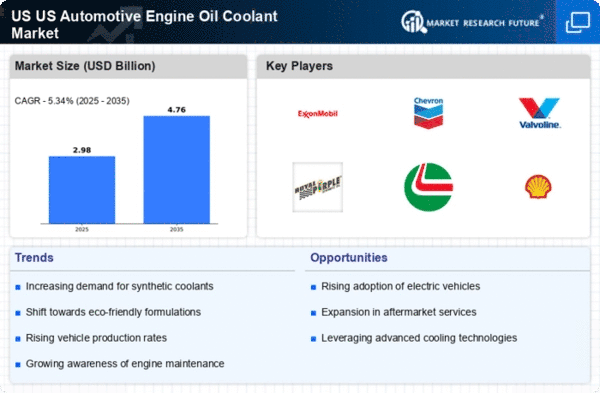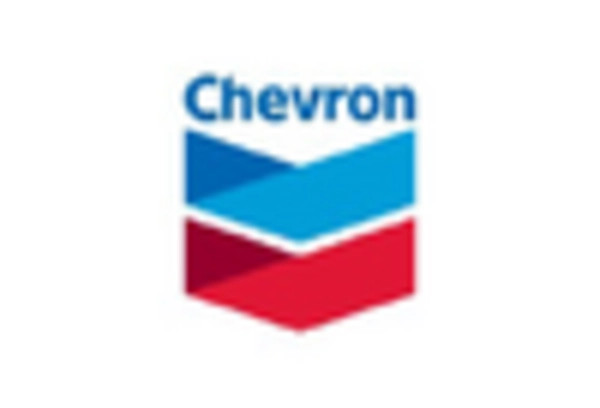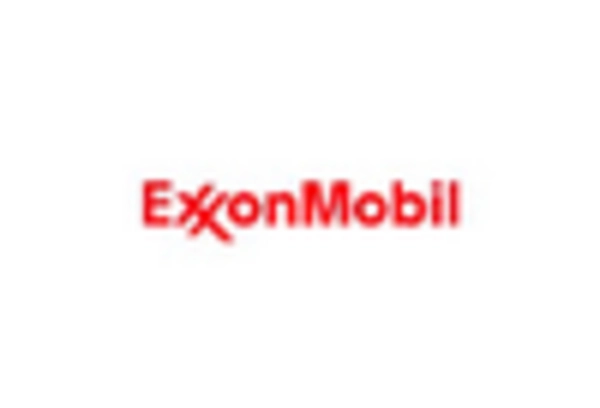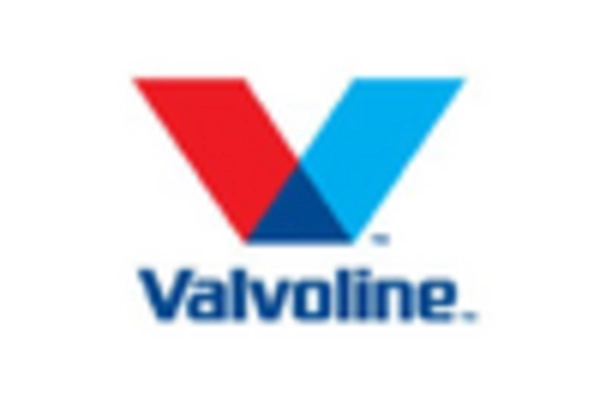Increasing Vehicle Production
The US Automotive Engine Oil Coolant Market is experiencing growth due to the rising production of vehicles. In 2025, the US automotive sector produced approximately 10 million vehicles, reflecting a steady increase in demand for engine oil coolants. This surge in vehicle production necessitates a corresponding rise in coolant usage, as manufacturers seek to ensure optimal engine performance and longevity. Furthermore, the trend towards more complex engine designs, which require advanced cooling solutions, further propels the demand for high-quality engine oil coolants. As automakers continue to innovate and expand their production capabilities, the US Automotive Engine Oil Coolant Market is likely to benefit from this upward trajectory.
Growth of Aftermarket Services
The US Automotive Engine Oil Coolant Market is bolstered by the expansion of aftermarket services. As vehicle ownership rates rise, the demand for maintenance and repair services increases, leading to a higher consumption of engine oil coolants. In 2025, the aftermarket segment accounted for approximately 40% of the total automotive service market in the US, indicating a robust opportunity for coolant suppliers. This growth is further fueled by the increasing awareness among vehicle owners regarding the importance of regular maintenance, which includes coolant replacement. Consequently, the US Automotive Engine Oil Coolant Market stands to gain from the rising trend of aftermarket services, as consumers prioritize vehicle longevity and performance.
Regulatory Compliance and Standards
The US Automotive Engine Oil Coolant Market is significantly influenced by stringent regulatory standards aimed at reducing emissions and enhancing vehicle efficiency. The Environmental Protection Agency (EPA) has implemented regulations that require automotive manufacturers to utilize coolants that meet specific environmental criteria. This has led to an increased demand for eco-friendly and high-performance engine oil coolants that comply with these regulations. As manufacturers strive to meet these standards, they are likely to invest in advanced coolant formulations, thereby driving growth in the US Automotive Engine Oil Coolant Market. Compliance with these regulations not only ensures environmental sustainability but also enhances the market's competitiveness.
Rising Awareness of Engine Maintenance
The US Automotive Engine Oil Coolant Market is positively impacted by the growing awareness of engine maintenance among vehicle owners. Educational campaigns and resources have increased consumer knowledge regarding the importance of using high-quality engine oil coolants for optimal engine performance. This heightened awareness is leading to more frequent coolant checks and replacements, thereby driving demand in the market. In 2025, surveys indicated that over 60% of vehicle owners recognized the significance of regular coolant maintenance, reflecting a shift in consumer behavior. As awareness continues to rise, the US Automotive Engine Oil Coolant Market is expected to benefit from increased sales and a focus on quality products.
Technological Innovations in Coolant Formulations
The US Automotive Engine Oil Coolant Market is witnessing a wave of technological innovations in coolant formulations. Manufacturers are increasingly developing advanced coolants that offer superior thermal management and protection against engine wear. Innovations such as the incorporation of nanotechnology and synthetic additives are enhancing the performance of engine oil coolants, making them more efficient and durable. This trend is particularly relevant as vehicles become more sophisticated, requiring advanced cooling solutions to maintain optimal performance. As a result, the US Automotive Engine Oil Coolant Market is likely to experience growth driven by these technological advancements, which cater to the evolving needs of modern vehicles.
















